(105401 products available)
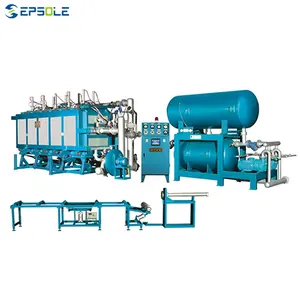





































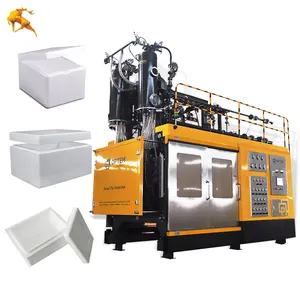








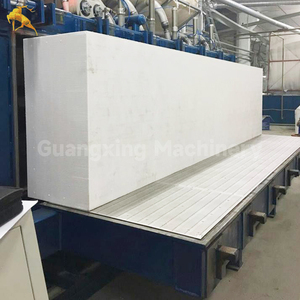
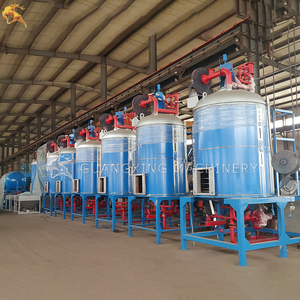


























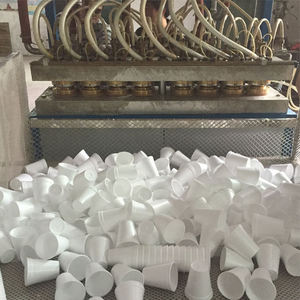









































































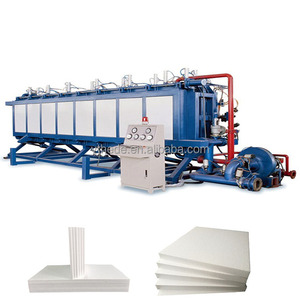

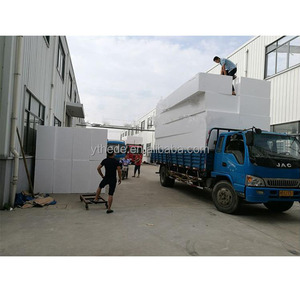
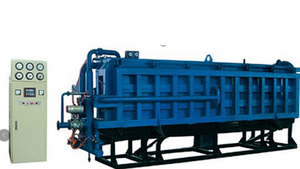
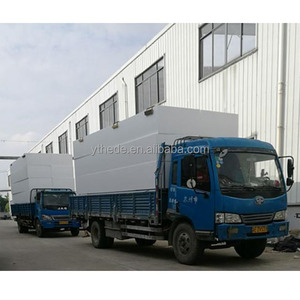
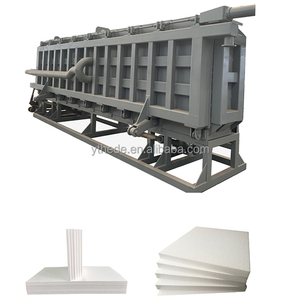







































The EPS machine is a piece of industrial equipment designed for the production of expanded polystyrene (EPS) products. It is a thermoplastic material that, when subjected to specific manufacturing processes, expands and solidifies to form a lightweight and versatile material. The EPS machine is the cornerstone of the EPS manufacturing process, allowing for the mass production of various EPS products, including packaging materials, insulation panels, and decorative elements.
The first type is the EPS pre-expander machine. It is used in the initial stage of the EPS manufacturing process. This machine is responsible for the expansion of EPS beads by steam, creating the basic building block for the production of EPS products. The second type is the EPS shape molding machine. It is designed to mold expanded polystyrene into specific shapes and sizes. Whether it's intricate packaging designs or large insulation panels, the EPS shape molding machine can be tailored to the exact requirements of the end product. The third type is the EPS block molding machine. It is used for producing large blocks of EPS. These blocks can then be cut into smaller pieces for further processing or used as is for applications such as insulation. The fourth type is the EPS cutting machine. It is utilized for precise cutting of expanded polystyrene into desired shapes and dimensions. This machine plays a critical role in the customization of EPS products, ensuring they meet the exact specifications of the end user.
EPS machines are widely used in the construction industry for applications such as insulation, void fill, and lightweight fill. EPS is valued for its thermal insulation properties, making it an ideal material for insulating walls, roofs, and foundations. For packaging, EPS is commonly employed in the food and beverage industry to protect fragile items during shipping and storage. The cushioning and impact-resistant characteristics of EPS help prevent damage to products, ensuring they reach their destination in optimal condition. In the automotive sector, EPS is utilized in various components, including bumpers, interior panels, and under-the-hood applications. The lightweight nature of EPS contributes to fuel efficiency and enhances vehicle performance. The versatility of EPS extends to the arts and crafts sector, where it is used to create sculptures, props, and architectural models. The ease of shaping and finishing makes EPS a preferred material for artists and craftsmen. Lastly, in the marine industry, EPS is employed for buoyancy, ensuring the stability of floating structures such as docks, pontoons, and buoys.
EPS machines have made strides in sustainability. Manufacturers are actively adopting EPS recycling machines to manage the post-consumer and post-industrial EPS waste. These machines facilitate the collection, processing, and reprocessing of EPS, closing the loop on the material's lifecycle. The recyclability of EPS contributes to waste reduction and resource conservation, aligning with the principles of a circular economy. Additionally, advancements in EPS production technology have focused on enhancing energy efficiency and minimizing environmental footprint. Modern EPS machines are designed to optimize energy consumption during the manufacturing process, reducing greenhouse gas emissions and overall environmental impact. As the industry continues to innovate, the integration of sustainable practices and the adoption of eco-friendly materials are shaping the future of EPS machines and the expanded polystyrene industry as a whole.